No products in the cart.
We deliver to:
🇦🇺 Australia
🇨🇦 Canada
🇨🇿 Czechia
🇩🇰 Denmark🇪🇪 Estonia
🇮🇪 Ireland
🇮🇱 Israel
🇮🇹 Italy
🇯🇵 Japan
🇲🇽 Mexico
🇵🇱 Poland
🇰🇷 South Korea
🇨🇭 Switzerland
🇬🇧 United Kingdom
🇺🇸 United States of Americaand more
We deliver to:
🇦🇺 Australia
🇨🇦 Canada
🇨🇿 Czechia
🇩🇰 Denmark🇪🇪 Estonia
🇮🇪 Ireland
🇮🇱 Israel
🇮🇹 Italy
🇯🇵 Japan
🇲🇽 Mexico
🇵🇱 Poland
🇰🇷 South Korea
🇨🇭 Switzerland
🇬🇧 United Kingdom
🇺🇸 United States of Americaand more
[category_image]
Edem Rino spray nasal solution bottle 10 ml
$18.78
Edem Rino is a combination drug containing phenylephrine and dimethindene. The drug reduces nasal discharge and helps clear the nasal passages without disturbing the physiological functions of the ciliated epithelium and nasal mucosa.
Categories: Cold and flu
Brand: Farmak
Composition and form of release
Active ingredients: phenylephrine, dimethindene maleate.
Composition
- 1 ml of the drug contains phenylephrine 2.5 mg, dimethindene maleate 0.25 mg;
- Excipients: benzalkonium chloride; lavender extract; sorbitol (E 420); citric acid, monohydrate; sodium hydrogen phosphate, dodecahydrate; water for injections.
Release form
Nasal spray, solution.
Pharmacological properties
Edema Reno is a combination drug containing phenylephrine and dimethindene.
Rhino’s edema reduces nasal discharge and helps clear the nasal passages without disrupting the physiological functions of the ciliated epithelium and nasal mucosa.
Phenylephrine belongs to the sympathomimetic amines. It is used as a nasal decongestant with a moderate vasoconstrictor effect, selectively stimulating α 1 adrenergic receptors of the cavernous venous tissue of the nasal mucosa. Thus, it quickly and permanently eliminates swelling of the nasal mucosa and its paranasal sinuses.
Dimetinden is an antagonist of histamine H 1 receptors, exhibits antiallergic action. It is effective when used in low doses, and is well tolerated.
Reno’s edema is applied topically, so its activity does not correlate with the concentration of active substances in blood plasma.
With accidental oral administration, the bioavailability of phenylephrine decreased and was approximately 38%, T ½ – about 2.5 hours.
The systemic bioavailability of dimethindene after oral administration in the form of a solution is about 70%, T ½ is about 6 hours.
Indication
Symptomatic treatment of colds, nasal congestion, acute and chronic rhinitis; seasonal (hay fever) and non-seasonal allergic rhinitis, acute and chronic sinusitis, vasomotor rhinitis. Adjunctive therapy in acute otitis media.
Preparation for surgical intervention in the nasal area and elimination of swelling of the nasal mucosa and paranasal sinuses after surgical intervention.
Application
Before administering the drug, the nose should be thoroughly cleaned.
Adults and children over 6 years of age: 1 spray into each nostril 3-4 times a day.
The bottle should be held vertically with the spray upwards. Keeping your head straight, insert the tip into the nostril, press the spray with a short, sharp movement and, pulling it out of the nose, unclamp it. During the injection, it is recommended to inhale slightly through the nose.
The duration of treatment should not exceed 7 days and depends on the course of the disease.
Contraindication
Hypersensitivity to any of the components of the drug.
Due to the content of phenylephrine, this drug, like other vasoconstrictors, is contraindicated in atrophic rhinitis, as well as in patients who are taking MAO inhibitors or have taken them in the previous 14 days.
Side effects
The drug is usually well tolerated.
In some cases, mild temporary local reactions on the part of the nasal mucosa (burning sensation or dryness) are possible. Very rarely, the development of allergic reactions (in particular, local skin reactions, itching, swelling of the eyelids, face, general weakness).
Special instructions
Edema Reno should not be used for longer than 1 week.
As with other vasoconstrictors, the recommended dose should not be exceeded. Excessive use of the drug, especially in children and the elderly, may cause systemic effects of the drug.
The drug should be prescribed with caution to patients with cardiovascular diseases, hypertension, glaucoma, and thyroid diseases.
Pregnancy and breastfeeding
The drug is not prescribed during pregnancy and breastfeeding.
Drivers
Does not affect the ability to influence the reaction speed when driving vehicles or working with other mechanisms.
Children
This dosage form of the drug is not used in children under 6 years of age. Another dosage form of the drug should be used – Milt nasal drops.
Interactions
The drug is contraindicated in patients who are taking MAO inhibitors or have taken them in the previous 14 days.
Vasoconstrictors should be prescribed with caution to individuals taking tricyclic antidepressants and antihypertensive drugs such as β-adrenergic blockers.
Overdose
No serious side effects have been reported when the drug was accidentally taken orally by young children.
Most cases were asymptomatic, very rarely reported feelings of fatigue, stomach pain, mild tachycardia, increased blood pressure, irritability, insomnia, and pale skin.
Treatment: use of activated charcoal, possibly use of laxatives in young children (gastric lavage is not required); adults and older children are prescribed to drink plenty of fluids.
Storage conditions
In the original packaging at a temperature not exceeding 25 °C.
Be the first to review “Edem Rino spray nasal solution bottle 10 ml” Cancel reply
You may also like


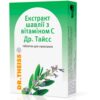
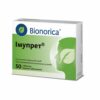
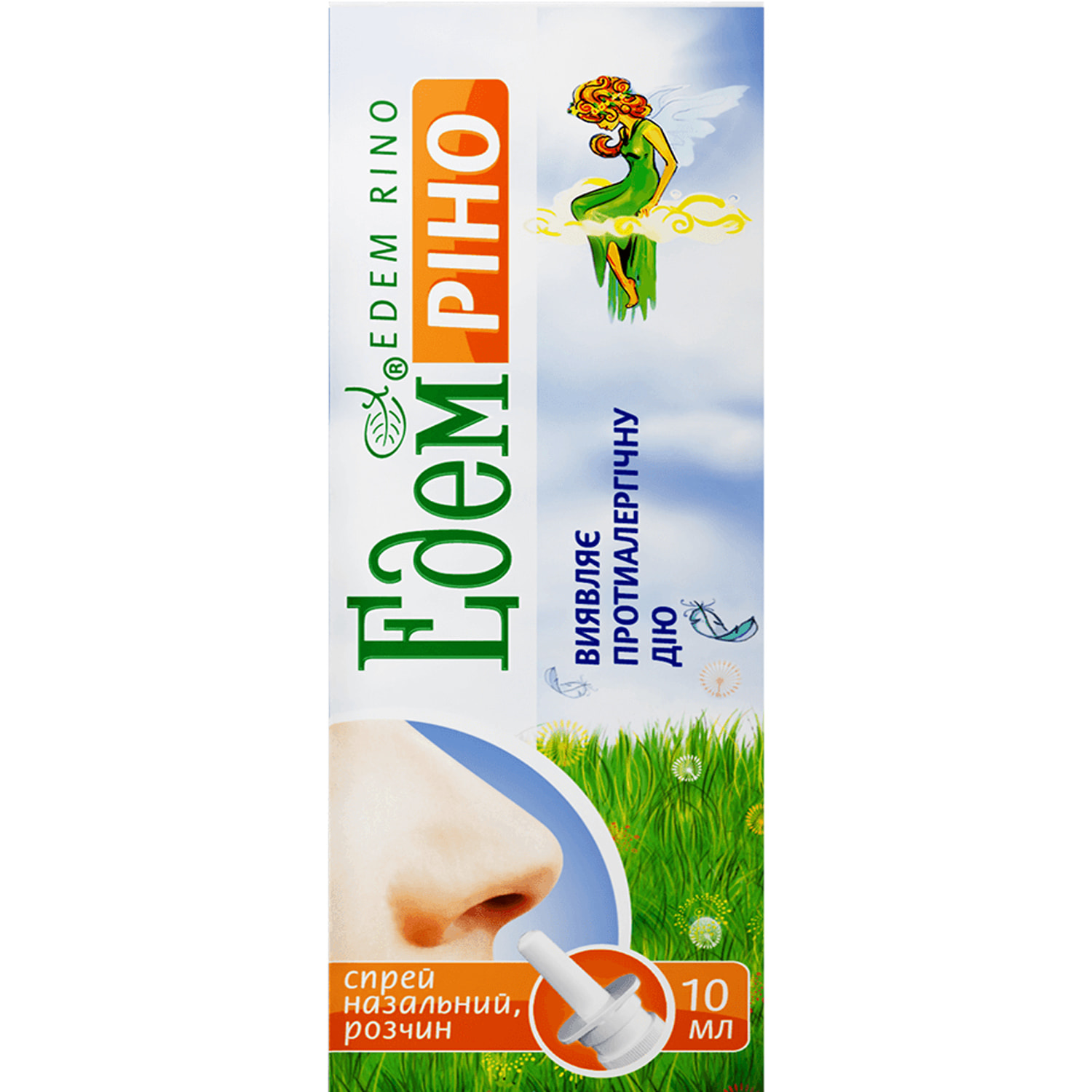
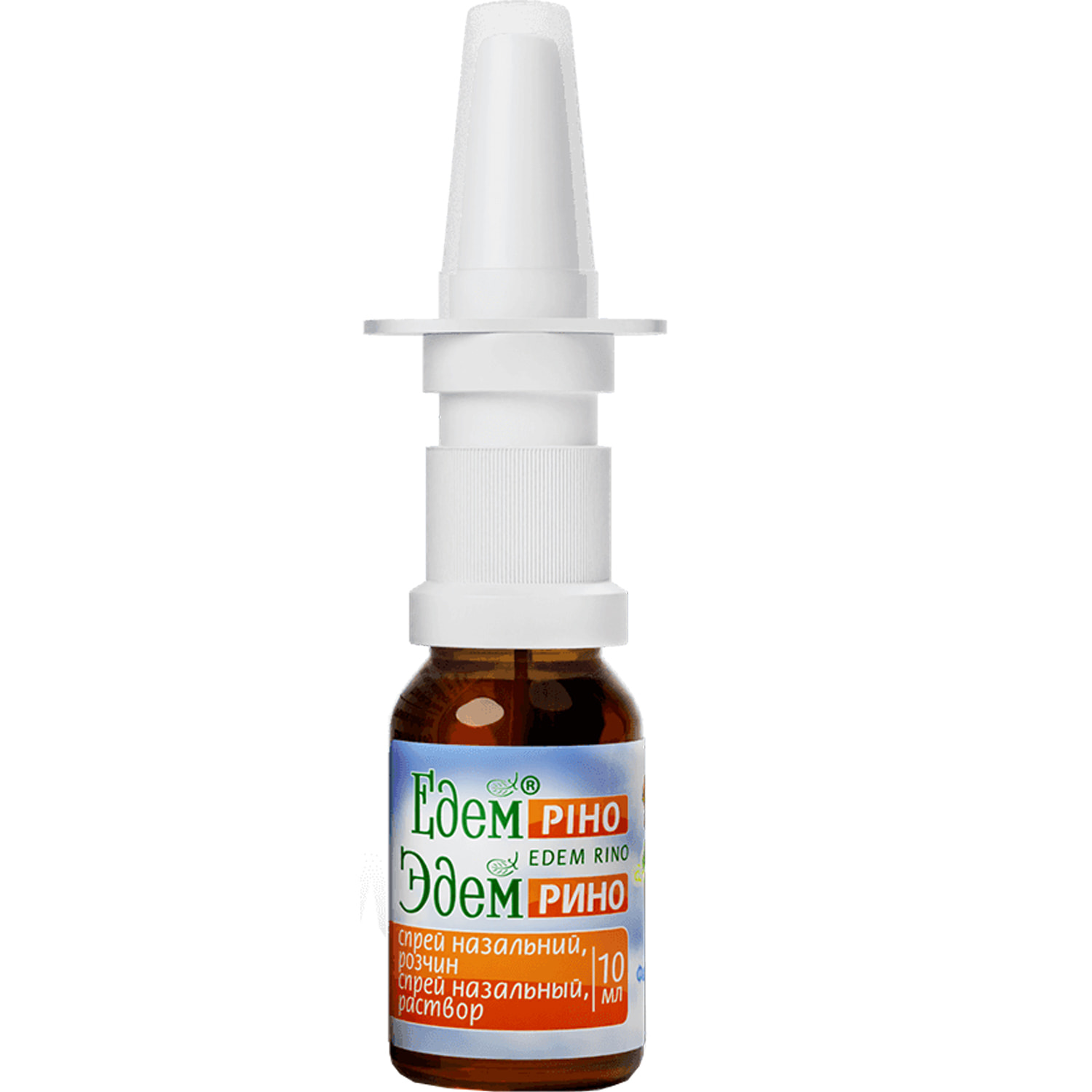


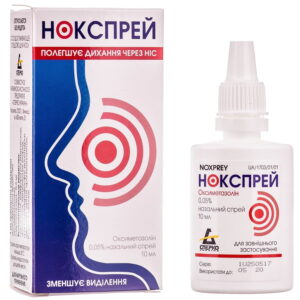
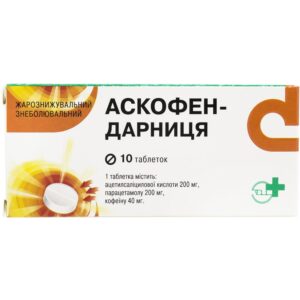
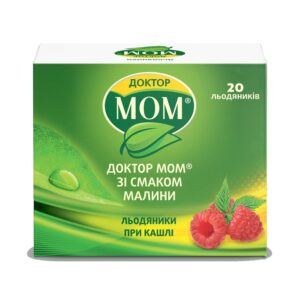
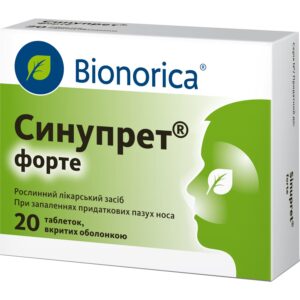
Reviews
There are no reviews yet.